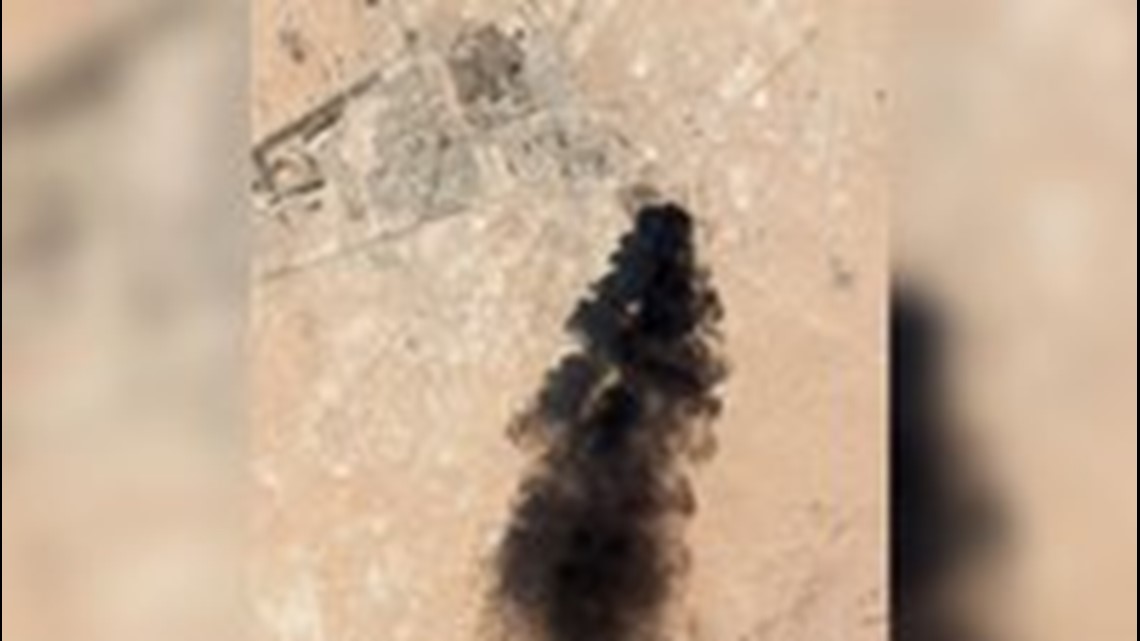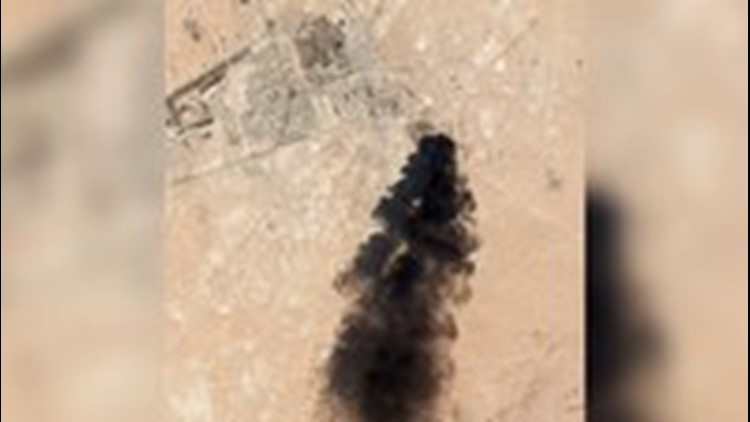(CNN) — White House senior counselor Kellyanne Conway said Sunday that President Donald Trump has “many options on the table” in terms of what he coulddo to respond to what his administration has described as Iran’s role in a crippling strike on Saudi Arabia’s oil production this weekend.


Conway, in keeping with the Trump administration’s policy of declining to outline possible military responses to provocations, declined to say whether a retaliatory strike on Iranian oil is under consideration. But she did leave open the door to a potential meeting between Trump and Iranian President Hassan Rouhani next week in New York — something that was a possibility before the attack in Saudi Arabia.
“The President will always consider his options,” Conway said on “Fox News Sunday” when asked if Trump would still sit down with Rouhani under current circumstances. “We’ve never committed to that meeting at the United Nations General Assembly. The President’s just said he’s looking at it.”
“When you attack Saudi Arabia … you’re not helping your case much,” she added.
Secretary of State Mike Pompeo pinned the blame on Iran for an attack at a Saudi oil field in a pair of tweets Saturday.
Drone strikes on crucial Saudi Arabian oil facilities have disrupted about half of the kingdom’s oil capacity, or 5% of the daily global oil supply, CNN Business reported earlier Saturday. Yemen’s Houthi rebels took responsibility for the attacks but they are often backed by Iran.
Yemen’s Houthi rebels took responsibility for the attacks but they are often backed by Iran.
But preliminary indications are that the attacks did not originate from Yemen and likely originated from Iraq, according to a source with knowledge of the incident. The same official said the damage was caused by an armed drone attack.
Conway also downplayed the impact of likely disruptions to the global oil market by pointing to Trump’s efforts to develop domestic energy.
“This President also through his energy policy, Bill, has made us less dependent on these foreign leaders and bad regimes for our energy supply,” she told Fox’s Bill Hemmer. “We have energy under our feet and off our shore and this President is leading the way to responsibly develop it.”
CNN National Security Analyst Peter Bergen said there have been more than 200 drone attacks launched by Houthi rebels from Yemen into Saudi Arabia, and none have been as effective as Saturday’s attack, lending credence to the belief that the attack did not originate from Yemen.
It’s unclear when Abiqaiq, which is operated by Saudi giant Aramco, will be fully operational again.
Saudi Arabia has been leading a military campaign to quash the Houthi rebels in Yemen since March 2015. The conflict is widely seen as a proxy war between the Saudis and Iran, which has been backing the Houthis.
CNN has independently reached out to the State Department for further information regarding the attack and who was involved.
Trump called Saudi Crown Prince Mohammad bin Salman on Saturday to offer his support for the country’s self-defense, White House deputy press secretary Judd Deere said in a statement.
“The United States strongly condemns today’s attack on critical energy infrastructure,” Deere said. “Violent actions against civilian areas and infrastructure vital to the global economy only deepen conflict and mistrust.”
The US government “remains committed to ensuring global oil markets are stable and well supplied,” the spokesman said.
Bolton’s exit
Conway on Sunday dismissed a question about whether Trump has a sufficiently robust national security team in place in the wake of the departure of his national security adviser, John Bolton, this week.
She spoke broadly about the President welcoming dissent on his team, but then said she was not speaking specifically about disagreements between the President and Bolton.
The Washington Post, citing a person close to Bolton, reported Saturday that his departure from Trump’s team stemmed from a disagreement Monday over a suggestion from Trump that the US might lift some sanctions on Iran as a negotiation tool.
Conway said Sunday that “John Bolton and Donald Trump were aligned on many different issues.”
“Before the President makes a decision … he invites dissenting opinions. He not just expects, he accepts disagreement,” she said. “And then he weighs the consequences, hears everybody out, reads the briefing papers…and then he makes the decisions.”
Conway said Trump is in the process of interviewing candidates and that a decision could come this week or next. “It is the President’s agenda, his national security, foreign policy beliefs that will go forward,” she said.



